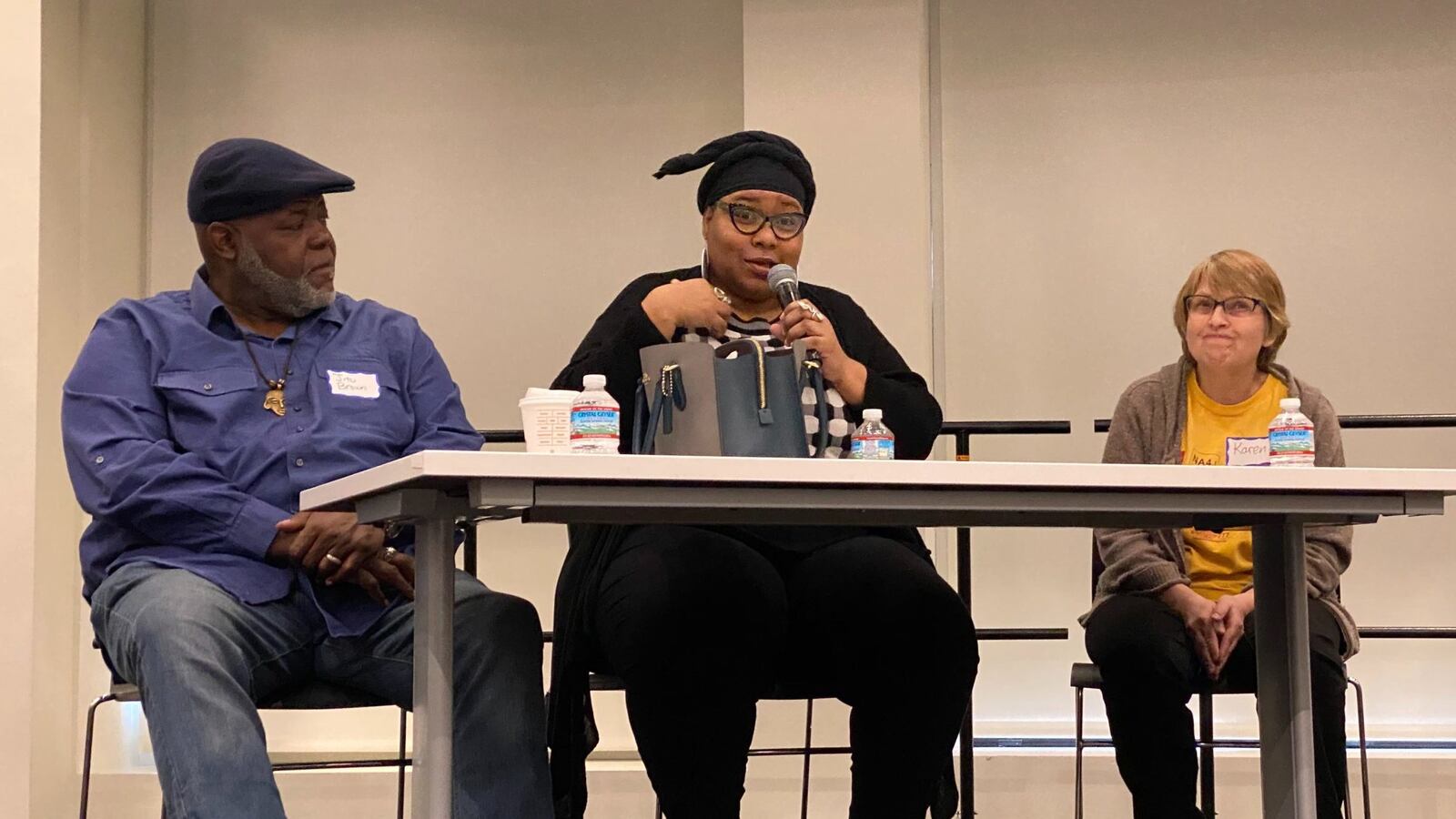Established as a way to ensure parent and staff input into the running of schools, Chicago’s Local School Councils were heralded as a potent mechanism to empower communities.
Twenty years later, many councils suffer from vacancies, parent indifference, and a sense of powerlessness. But with council elections looming in April, the school district is hoping to beef up participation, parents are speaking out, and a key state bill could boost the councils’ profile. Chicago community groups are seeking to engage parents and community members and press lawmakers to give the bodies more teeth.
In a city lacking an elected school board, “It is the only democracy we have within the education system in Chicago,” said Rod Wilson, an organizer from the Lugenia Burns Hope Center, at a workshop aimed at strengthening the councils.
“If you’re getting public dollars then we’re saying that parents should have some say in the governance of the school.” But some parents feel as if they’re fighting an uphill battle to create change.
“Most members don’t welcome me there,” said Myriam Perez, who has served three terms as a community representative on the council of her former school, Nathan S. Davis Elementary in Brighton Park. She joined the council because she wanted to give back to the school that made her feel safe when she didn’t in her own home. But she’s had a mixed experience.
“I tend to ask a lot of questions, I tend to call people out if they’re not doing something … I don’t like going sometimes but I go anyways because I know that I want to speak up for students that might want a safe space at Davis.”
At the Saturday workshop, the host group Raise Your Hand encouraged attendees to get involved with their councils and briefed on coming changes, including the proposed LSC Empowerment Bill that would bolster councils’ powers.
More than 150 council members, parents, teachers and community members, plus several school board members, attended the Saturday workshop at offices of the teachers union.
Chicago is the only city in the state that uses the local school council model in public schools. Each school council has space for six parents, two teachers, one non-teacher staff member and two community members, as well as a student representative in high schools.
The councils have the authority to hire and evaluate the principal, allocate discretionary funds, and approve and monitor the school improvement plan.
Charter schools, contract schools and military schools — which together make up about one-fifth of public schools in the city — do not have councils.
But those schools would be required to form local councils under a state bill proposed by Rep. Sonya Harper, of the 6th district, and Sen. Ram Villivalam, of the 8th district. The bill also would allow councils to keep decision-making authority when schools are on probation.
It also would prohibit the district from closing any school without a supermajority of the council approving.
Additionally, the bill would scale back district influence on the councils and create advisory positions for seventh and eighth graders. In response to criticism about the preparation and ongoing support for council members, the bill calls for an independent commission in charge of training.
Some parents cite a lack of consistency among schools in running councils. Many attendees raised questions about voting technicalities and election rules, as well as the specifics of LSC authority.
The John H. Hamline Elementary council has a community vacancy and a non-teacher staff vacancy, said Geszill Lightfoot, a teacher at the school who has served on the council.
“Community should be involved because they have a stake in the education of the kids as well. It’s their school, their neighborhood,” said Jessica Suarez Nieto, who also teaches at Hamline Elementary, located in the Back of the Yards neighborhood. “How do we welcome parents to come in?”
David Vance, who is the community representative at James H. Bowen High School and James N. Thorp Elementary School, in South Chicago, said he’s noticed a lack of parent and community involvement in both councils.
“We need more parent involvement,” Vance said. “This is our taxpayer money. Our schools are public institutions, so we need to have our voices loud and clear to fight for the money that we need to fight for better schools because CPS hasn’t been doing it.”
Others said they hoped to bring a fresh perspective to their current councils. Bridget Doherty Trebing, a visual art teacher at Taft High School, in Norwood Park, said that her school’s council does not reflect the diverse student body and has consistent low attendance at meetings.
“We benefit from some privilege, being a well-resourced school, but our LSC is not terribly progressive … so I don’t feel like our LSC best serves our students,” Doherty Trebing said. “I don’t think we’re doing a good job of engaging the community.”
The coalition LSCs.4.All will launch a hotline Feb. 15 will launch a hotline on Feb. 15 to assist with elections and answer general inquiries, said Jennie Biggs, communications and outreach director of Raise Your Hand. The number will be 707-LSC-4ALL.
Elections will be held April 22 at elementary schools and April 23 at high schools.

